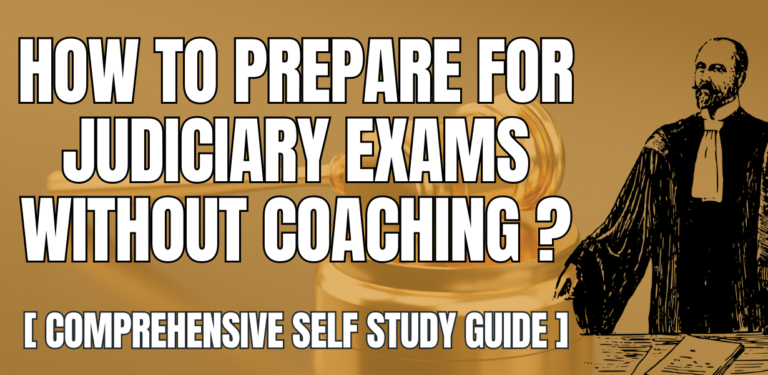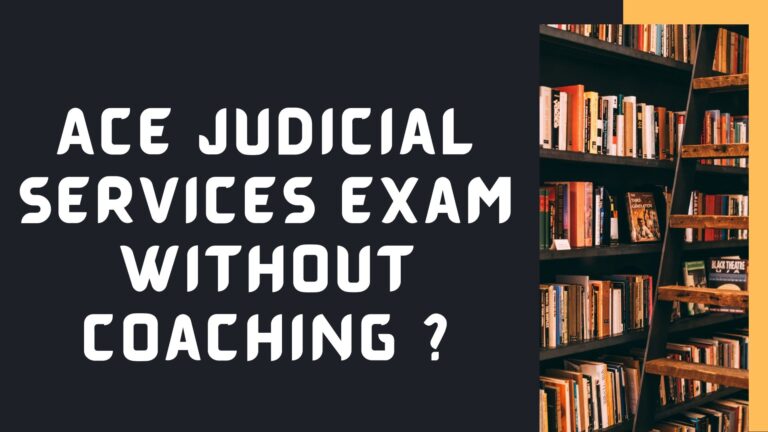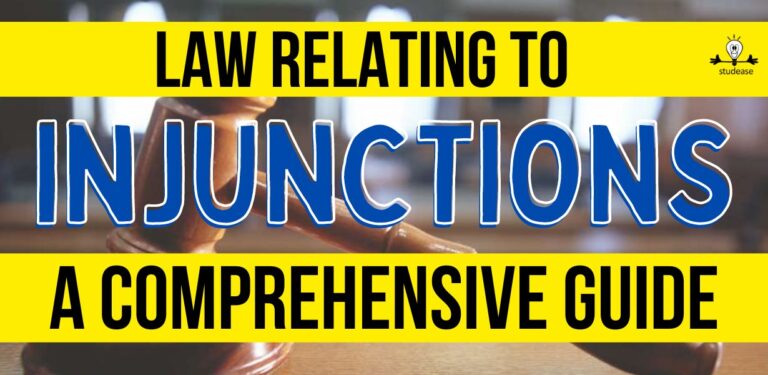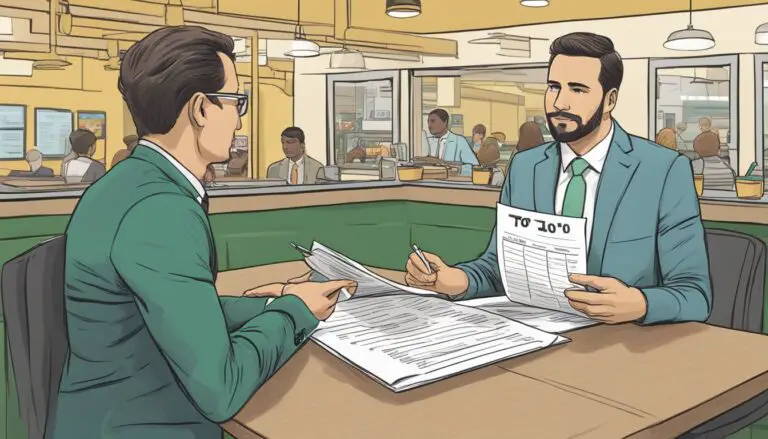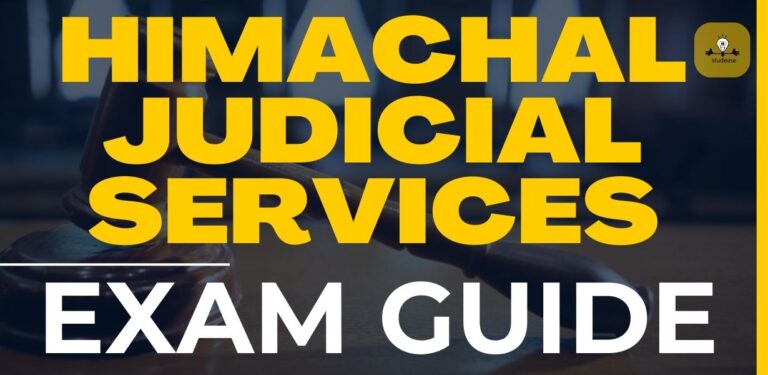100+ Interview Questions for Competitive Exams: Key Insights for Success

Competitive exams are a decisive factor for many career-oriented individuals. If you aim to excel in your professional journey, these exams often serve as gatekeepers to prestigious positions and respected fields.
As you navigate the intricate interview process that follows qualifying exams, remember that preparation is key. The interview is not merely a formality; it’s an integral part of the selection process where your skills, knowledge, and composure are scrutinised.

Your ability to articulate your thoughts, reason critically, and exhibit a well-rounded skill set comes to the forefront during a job interview. While the written competitive exams test your quantitative and qualitative aptitude, interviews assess interpersonal skills, problem-solving abilities, and your adaptability to professional challenges. It’s not just about what you know, but how you convey that knowledge and interact within a professional context.
Approaching interviews after competitive exams requires a strategic mindset. Familiarize yourself with commonly asked questions ranging from basic to tough. This provides a framework to structure your thoughts and helps highlight your skills effectively.
Moreover, practicing these questions enhances your confidence, allowing you to present your best self. As the landscape of job interviews continuously adapts, staying current with potential questions and interview trends becomes an increasingly valuable aspect of your preparation.
Page Contents
Basic Interview Questions for Competitive Exams

When preparing for competitive exams, you’ll encounter a variety of questions designed to assess your aptitude across different subjects.
Below is a list of potential questions you may face during an interview that tests your logical reasoning, numerical ability, and understanding of basic and advanced concepts.
Q: What motivated you to pursue a career in the judiciary?
A: I have always been passionate about upholding justice and ensuring the fair application of laws, which inspired me to pursue a career in the judiciary.
Q: How do you stay updated with the latest legal developments and judgments?
A: I regularly read legal journals, attend seminars, and participate in discussions with legal experts to stay informed about the latest legal developments and judgments.
Q: Can you explain a recent landmark judgment and its significance?
A: Certainly, the recent XYZ v. ABC judgment was significant as it set a precedent for protecting the rights of marginalized communities and emphasized the need for equitable access to justice.
Q: How do you handle cases involving conflicting precedents?
A: I carefully analyze the facts of the case and conduct thorough research to identify the most relevant precedent, ensuring that the decision aligns with the principles of justice and fairness.
Q: What do you consider to be the most challenging aspect of serving as a judge?
A: The most challenging aspect is ensuring that each decision is based on sound legal reasoning and upholds the principles of justice, especially in complex and sensitive cases.
Q: How do you approach cases where the law may seem to be in conflict with societal expectations?
A: I prioritize interpreting the law in a manner that aligns with evolving societal norms and values, while also respecting the legislative intent and constitutional principles.
Q: How do you handle cases that involve complex technical or scientific evidence?
A: I seek expert opinions and rely on specialized knowledge to understand and appropriately apply technical or scientific evidence in such cases.
Q: What role do you believe alternative dispute resolution methods play in reducing the burden on the judicial system?
A: Alternative dispute resolution methods, such as mediation and arbitration, play a crucial role in easing the burden on the judicial system and promoting timely resolution of disputes.
Easy Interview Questions for Competitive Exams

When you’re preparing for a competitive exam interview, it’s crucial to practice a variety of questions that you may encounter. This can improve your problem-solving skills and help you feel more confident during the actual interview. Below is a list of easy questions that are often asked by interviewers in a competitive exam interview situation. These questions can help you assess where you stand and identify areas where you need to improve.
- Tell me about yourself. A: Give a brief introduction about your educational background, job experience, and interests.
- Why do you want this job? A: Focus on how the job aligns with your career goals and the skills that make you a suitable candidate.
- How do you prioritize your tasks? A: Discuss how you determine the order of importance and deadlines to complete tasks efficiently.
- Can you describe a challenge you’ve faced and how you dealt with it? A: Provide an example of a problem you’ve encountered and describe the steps taken to overcome it.
- How do you handle stress and pressure? A: Explain your techniques for managing stressful situations and maintaining productivity.
- What are your greatest strengths? A: Clearly state your key strengths and give examples that demonstrate these qualities.
- Do you prefer to work independently or as part of a team? A: Illustrate your ability to work both autonomously and collaboratively, depending on the task.
- What is your greatest weakness, and what have you done to improve it? A: Mention a trait that you’ve recognized as a weakness but have taken steps to rectify.
- Where do you see yourself in five years? A: Outline your professional aspirations and how the position can help you achieve them.
- Why should we hire you over other candidates? A: Emphasize the value you bring to the employer and your unique qualifications for the job.
These are just the initial ten questions to get you started with your interview preparation. Remember, practice is key to presenting yourself as a competent and poised candidate. Good luck!
Competitive Exams Interview Medium Level Questions

When preparing for competitive exams, solidifying your foundational knowledge and then progressing to more challenging concepts is crucial. This progression helps you build confidence and improve your problem-solving skills. The following questions range from basic to more difficult, and they touch upon various topics and core interview skills.
- What inspired you to pursue a career in competitive exams?
- Can you discuss a challenging situation you faced during your exam preparation and how you overcame it?
- How do you prioritize your study schedule when preparing for multiple subjects?
- Can you provide an example of a time when you had to adapt your study methods to overcome a difficult concept?
- What strategies do you use to manage exam-related stress and anxiety?
- How do you approach time management during exams with strict time limits?
- Can you discuss a subject or topic that you find particularly challenging and how you plan to improve in that area?
- How do you stay motivated during long and demanding study sessions?
- Can you share an experience where you successfully applied a study technique that significantly improved your understanding of a complex topic?
- What resources do you utilize to stay updated with current affairs and general knowledge for competitive exams?
- How do you ensure a balance between studying for competitive exams and maintaining a healthy lifestyle?
- Can you discuss a time when you had to handle distractions while preparing for exams and how you managed them?
- What do you consider to be your greatest strength in the context of competitive exams, and how does it benefit your preparation?
- How do you approach the process of reviewing and revising previously studied material?
- Can you describe a situation where you had to navigate a disagreement with a study group member and how you resolved it?
- What role do mock tests and practice papers play in your exam preparation strategy?
- Can you discuss a time when you had to seek additional help or guidance to overcome a study-related challenge?
- How do you maintain a balance between speed and accuracy when answering questions in competitive exams?
- Can you provide an example of a study-related setback you encountered and how you rebounded from it?
- What measures do you take to ensure that you fully understand the concepts and principles being tested in competitive exams?
- Can you discuss the significance of critical thinking skills in the context of competitive exams?
- How do you approach the process of learning from your mistakes in practice tests and mock exams?
- Can you share an experience where you had to adapt your study approach to accommodate unexpected changes in exam patterns or syllabi?
- What strategies do you employ to effectively manage and retain large volumes of information for competitive exams?
- Can you discuss a time when you had to make a difficult decision regarding the exam preparation?
- Can you provide an example of a situation where you had to apply logical reasoning skills to solve a complex problem related to your exam preparation?
- How do you ensure that you understand the underlying principles and concepts behind the questions asked in competitive exams?
- Can you discuss a time when you had to manage your study schedule to accommodate unexpected personal or academic commitments?
- What role does self-discipline play in your approach to preparing for competitive exams?
- Can you provide an example of a study technique or mnemonic device that has been particularly effective in aiding your memory retention for exams?
- How do you handle periods of low motivation or lack of interest in specific exam topics?
- Can you discuss a time when you had to seek out additional study resources to supplement your understanding of a particular subject?
- What measures do you take to ensure that you are effectively retaining and recalling the information you study for competitive exams?
- Can you provide an example of a time when you had to adapt to a change in study environment or routine and how it impacted your preparation?
- How do you approach the process of setting achievable study goals and targets for your exam preparation?
- Can you discuss a time when you had to make trade-offs between different study priorities and how you managed them?
- What strategies do you use to stay focused and avoid procrastination during your exam preparation?
- Can you provide an example of a time when you had to multitask effectively to manage various study-related commitments?
- How do you ensure that you are fully prepared for the different sections or subjects covered in competitive exams?
- Can you discuss a time when you had to handle interruptions during your study sessions and how you managed to regain focus?
- What role does regular physical exercise and wellness activities play in supporting your exam preparation efforts?
- Can you provide an example of a time when you had to seek out mentorship or guidance from a more experienced individual to enhance your exam preparation?
- How do you approach the process of setting up and maintaining a conducive study environment for your exam preparation?
- Can you discuss a time when you had to manage your study schedule to balance preparation for multiple competitive exams?
- What strategies do you use to effectively tackle challenging and unfamiliar questions in practice tests or mock exams?
- Can you provide an example of a time when you had to manage unexpected technical issues or disruptions during an online exam or study session?
- Can you discuss a time when you had to adjust your study plan to accommodate changes in exam dates or schedules?
- How do you approach the process of seeking feedback on your study methods and incorporating constructive criticism to improve your exam preparation?
- Can you provide an example of a time when you had to demonstrate adaptability and resilience in the face of unexpected challenges during your exam preparation?
- Can you provide an example of a time when you had to overcome a lack of motivation or enthusiasm for a particular exam topic or subject?
Practice consistently with these questions to improve your chances of success in competitive exams interviews. Your efforts in developing your analytical skills and reinforcing core concepts will pay off.
Hard Questions for Competitive Exams Interview

When preparing for a competitive exams interview, you need to be ready for a range of questions that test various skills from verbal ability to quantitative aptitude.
- Can you discuss a specific case or legal issue that has recently garnered significant public attention, and how would you approach addressing the complexities surrounding it?
- How do you plan to uphold the principles of justice and fairness in your role, especially when faced with societal pressures or public opinion that may conflict with legal mandates?
- Can you provide an example of a legal conundrum that you find particularly challenging, and how would you navigate through the complexities to arrive at a just and equitable decision?
- How do you plan to balance the need for judicial efficiency with the imperative of ensuring thorough and comprehensive legal deliberations in complex cases?
- Can you discuss a recent legislative or judicial development that has raised questions about the balance between individual rights and societal interests, and how would you approach addressing such delicate matters?
- How do you plan to stay abreast of evolving legal precedents and global legal trends to ensure that your judgments are informed by the latest legal perspectives?
- Can you provide an example of a legal ambiguity or loophole that you find particularly challenging, and how would you strive to interpret and apply the law in such a scenario?
- How do you plan to navigate cases involving emerging technologies and their intersection with legal frameworks, especially when the law may not have caught up with technological advancements?
- Can you discuss a time when you had to reconcile conflicting legal opinions or interpretations, and how would you ensure that your decisions are grounded in sound legal reasoning and principles?
- How do you plan to address the potential impact of globalization and international legal developments on domestic legal systems, especially in the context of cross-border legal disputes?
- Can you provide an example of a legal precedent or judgment that you find particularly contentious, and how would you approach reconciling differing legal perspectives while upholding the integrity of the legal system?
- How do you plan to handle cases that involve intricate technical or scientific evidence, especially when the legal understanding of such evidence may be limited?
- Can you discuss a time when you had to navigate the complexities of legal ethics and professional conduct, and how would you ensure that your judicial decisions are aligned with the highest ethical standards?
- How do you plan to address the challenges posed by the increasing volume and complexity of legal cases, especially in the context of ensuring timely and effective dispensation of justice?
- How do you plan to balance the need for judicial independence with the imperative of accountability and transparency in your role as a judge?
- Can you discuss a time when you had to navigate legal intricacies in a multicultural or diverse societal context, and how would you ensure that your decisions are sensitive to diverse perspectives and experiences?
- How do you plan to address the potential impact of rapid legislative changes on the stability and consistency of legal frameworks, especially when the changes may pose challenges to established legal norms?
- Can you provide an example of a legal theory or doctrine that you find particularly complex, and how would you ensure that your decisions are rooted in a robust understanding of legal principles and theories?
- How do you plan to handle cases involving constitutional interpretations and challenges, especially when the interpretations may have far-reaching implications for rights and freedoms?
- Can you discuss a time when you had to grapple with the complexities of legal reasoning and argumentation, and how would you ensure that your judicial decisions are based on rigorous legal analysis and logic?
- How do you plan to navigate cases that involve conflicting international legal obligations and domestic legal imperatives, especially in the context of ensuring harmonization and coherence in legal interpretations?
- Can you provide an example of a legal dispute or issue that has significant historical or cultural implications, and how would you approach ensuring that your decisions are cognizant of historical and cultural sensitivities?
- How do you plan to address the potential impact of emerging legal philosophies and jurisprudential trends on the evolution of legal principles and doctrines?
- Can you discuss a time when you had to grapple with the complexities of legal remedies and relief, and how would you ensure that your decisions are aligned with the principles of justice and equity?
- How do you plan to balance the need for judicial discretion with the imperative of ensuring consistency and predictability in legal outcomes?
- Can you provide an example of a legal conflict or contradiction that you find particularly challenging, and how would you navigate through the complexities to arrive at a coherent and just resolution?
- How do you plan to address the potential impact of social and technological changes on legal norms and standards, especially in the context of ensuring adaptability and relevance of legal frameworks?
- Can you discuss a time when you had to grapple with the complexities of legal interpretation and application, and how?
- How do you plan to ensure that your judicial decisions are not only legally sound but also aligned with the broader principles of societal justice and welfare?
- Can you provide an example of a legal precedent that you find particularly controversial, and how would you approach reconciling differing legal perspectives while upholding the integrity of the legal system?
- How do you plan to handle cases involving intricate financial or economic matters, especially when the legal understanding of such matters may be complex and nuanced?
- Can you discuss a time when you had to navigate the complexities of legal pluralism and diversity, and how would you ensure that your decisions are sensitive to diverse legal traditions and practices?
- How do you plan to balance the need for judicial efficiency with the imperative of ensuring comprehensive and thorough legal deliberations in complex cases?
- Can you provide an example of a legal theory or doctrine that you find particularly challenging, and how would you ensure that your decisions are rooted in a robust understanding of legal principles and theories?
- How do you plan to navigate cases that involve conflicting international legal obligations and domestic legal imperatives, especially in the context of ensuring harmonization and coherence in legal interpretations?
- How do you plan to address the potential impact of emerging legal philosophies and jurisprudential trends on the evolution of legal principles and doctrines?
- Can you provide an example of a legal dispute or issue that has significant historical or cultural implications, and how would you approach ensuring that your decisions are cognizant of historical and cultural sensitivities?
- How do you plan to balance the need for judicial discretion with the imperative of ensuring consistency and predictability in legal outcomes?
- How do you plan to address the potential impact of social and technological changes on legal norms and standards, especially in the context of ensuring adaptability and relevance of legal frameworks?
- Can you provide an example of a legal conflict or contradiction that you find particularly challenging, and how would you navigate through the complexities?
Remember, these questions are for practice and the key to success is consistent mock interview sessions and thorough research of the company culture. Use resources like LinkedIn to understand the industry trends and to practice questions, ensure you have a strong foundation in the basics, especially in quantitative topics such as permutations, algebra, and proportion. Good luck with your preparation and examination.
What Next?
We at studease encourage students to prepare well and stay informed. For more Content, Join our Telegram group to stay updated.
Join: studease Telegram Channel
Follow us: instagram
Subscribe: studease Youtube Channel

